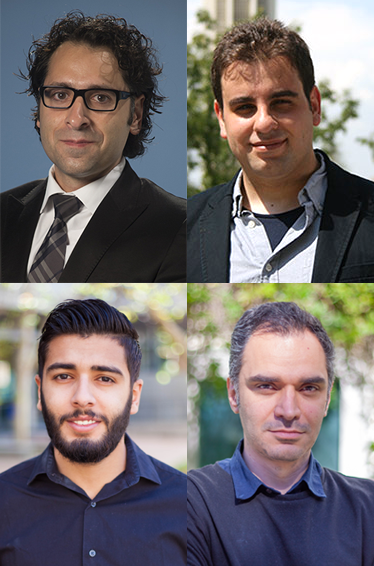Kassas and Students Win Best Paper and Best Student Paper Awards

May 8, 2020 - Zak Kassas, Samueli School assistant professor of mechanical & aerospace engineering and electrical engineering & computer science, and three of his graduate students won a Best Paper and Best Student Paper awards recently. The awards are scheduled to be presented in September at the IEEE/ION Position, Location, and Navigation Symposium (PLANS) in St. Louis, Missouri.
The Best Paper award went to Kassas and mechanical and aerospace engineering doctoral students Joe Khalife and Mohammad Neinavaie for “Navigation with Differential Carrier Phase Measurements from Megaconstellation LEO Satellites.” The paper presented a comprehensive analytical study of a novel framework for global positioning with differential carrier phase measurements from low-Earth orbit (LEO) satellites. According to Kassas, experimental results on an unmanned aerial vehicle using this system (and no GPS) were orders-of-magnitude more accurate than any previously reported results.
Doctoral student Ali Abdallah and Kassas authored the second paper, which won the Best Student Paper award. This award is given to the conference’s best paper whose first author is a student. “Deep Learning-Aided Spatial Discrimination for Multipath Mitigation” presented the use of machine learning coupled with a novel navigational approach that mitigates multipath signals and allows accurate navigation using cellular long-term evolution signals without requiring any additional sensors or infrastructure. Experimental results in three indoor and one outdoor environment demonstrated significant superiority over existing systems, said Kassas, who is director of UCI’s Autonomous Systems Perception, Intelligence, & Navigation (ASPIN) Laboratory.
“The IEEE/ION PLANS conference is considered one of the most premier conferences in the field of positioning, navigation and timing,” said Kassas. “To receive not one, but two best paper awards at the conference is a rare achievement that speaks to the quality of research produced by the ASPIN Laboratory.”
Kassas added that he is grateful for the support of the Office of Naval Research, the National Science Foundation and the National Institute of Standards and Technology “for believing in our vision and supporting this research.”
– Anna Lynn Spitzer
